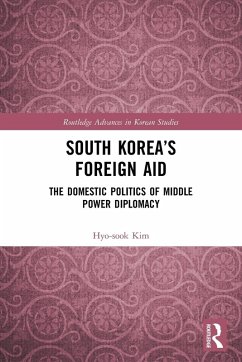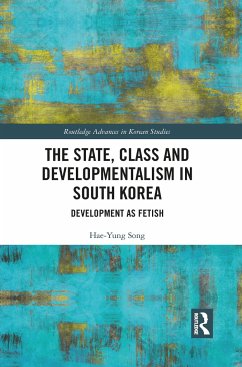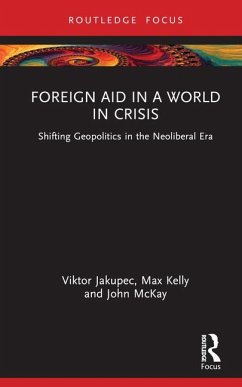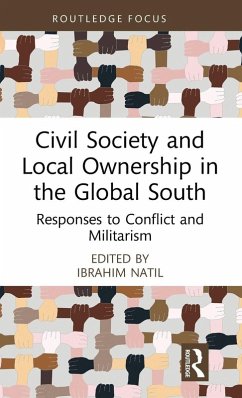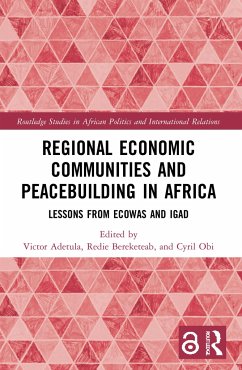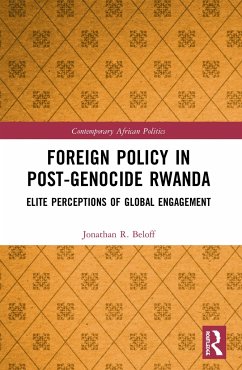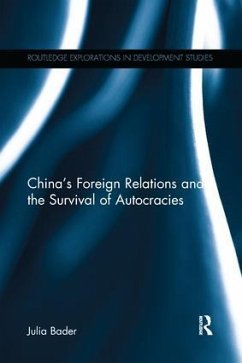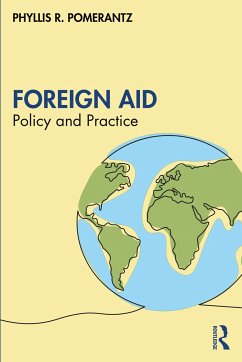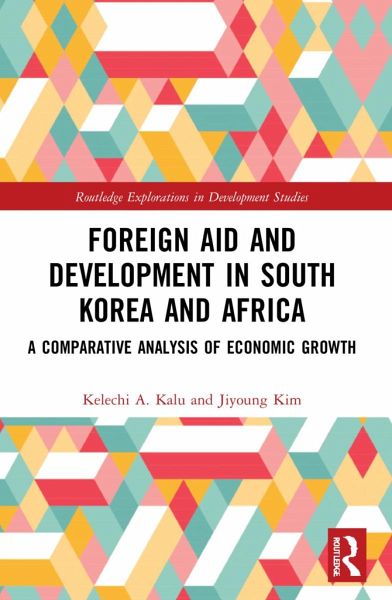
Foreign Aid and Development in South Korea and Africa
A Comparative Analysis of Economic Growth
Versandkostenfrei!
Versandfertig in 6-10 Tagen
45,99 €
inkl. MwSt.
Weitere Ausgaben:

PAYBACK Punkte
23 °P sammeln!
This book compares the rapid development of South Korea over the past 70 years with selected countries in sub-Saharan Africa to assess what factors contributed to the country's success story, and why it is that countries that were comparable in the past continue to experience challenges in achieving and sustaining economic growth.In the 1950s, South Korea's GDP per capita was $876, roughly comparable with that of Cote d'Ivoire and somewhat below Ghana's. The country's subsequent transformation from a war-ravaged, international aid-dependent economy to the 13th largest economy in the world has ...
This book compares the rapid development of South Korea over the past 70 years with selected countries in sub-Saharan Africa to assess what factors contributed to the country's success story, and why it is that countries that were comparable in the past continue to experience challenges in achieving and sustaining economic growth.
In the 1950s, South Korea's GDP per capita was $876, roughly comparable with that of Cote d'Ivoire and somewhat below Ghana's. The country's subsequent transformation from a war-ravaged, international aid-dependent economy to the 13th largest economy in the world has been the focus of considerable international admiration and attention. But how was it that South Korea succeeded in multiplying its GDP per capita by a factor of 23, while other Less Developed Countries continue to experience challenges? This book compares South Korea's politics of development and foreign assistance with that of Ghana, Nigeria, and Zambia, which were also major recipients of the U.S. aid, to investigate the specific contexts that made it possible for South Korea to achieve success. Overall, this book argues that effective state capacity in South Korea's domestic and international politics provided an anchor for diplomatic engagement with donors and guided domestic political actors in the effective use of aid for economic development.
This book will be of interest to researchers and students working on development, comparative political economy, and foreign aid, and to policy makers and practitioners looking for a greater understanding of comparative development trajectories.
In the 1950s, South Korea's GDP per capita was $876, roughly comparable with that of Cote d'Ivoire and somewhat below Ghana's. The country's subsequent transformation from a war-ravaged, international aid-dependent economy to the 13th largest economy in the world has been the focus of considerable international admiration and attention. But how was it that South Korea succeeded in multiplying its GDP per capita by a factor of 23, while other Less Developed Countries continue to experience challenges? This book compares South Korea's politics of development and foreign assistance with that of Ghana, Nigeria, and Zambia, which were also major recipients of the U.S. aid, to investigate the specific contexts that made it possible for South Korea to achieve success. Overall, this book argues that effective state capacity in South Korea's domestic and international politics provided an anchor for diplomatic engagement with donors and guided domestic political actors in the effective use of aid for economic development.
This book will be of interest to researchers and students working on development, comparative political economy, and foreign aid, and to policy makers and practitioners looking for a greater understanding of comparative development trajectories.






